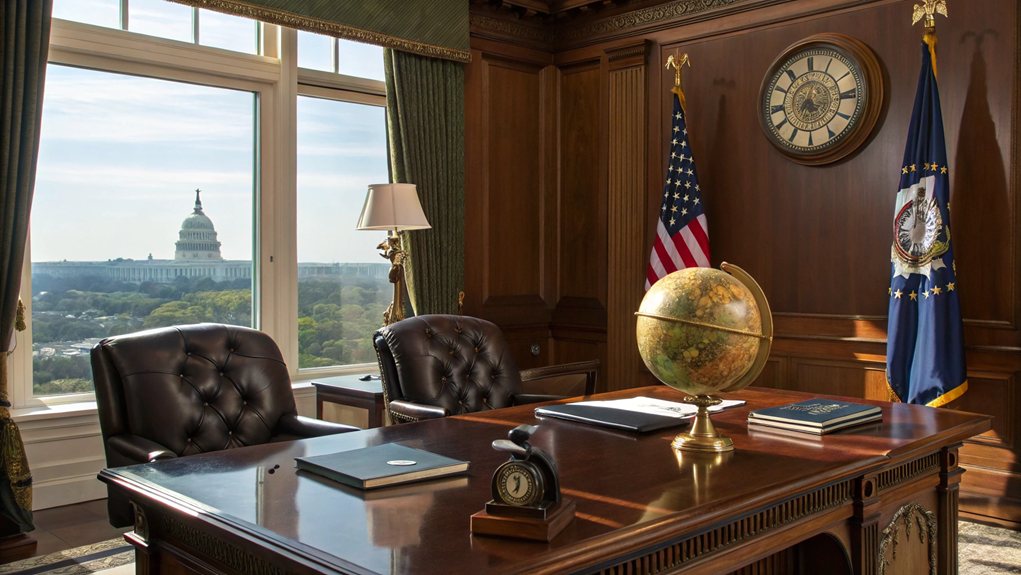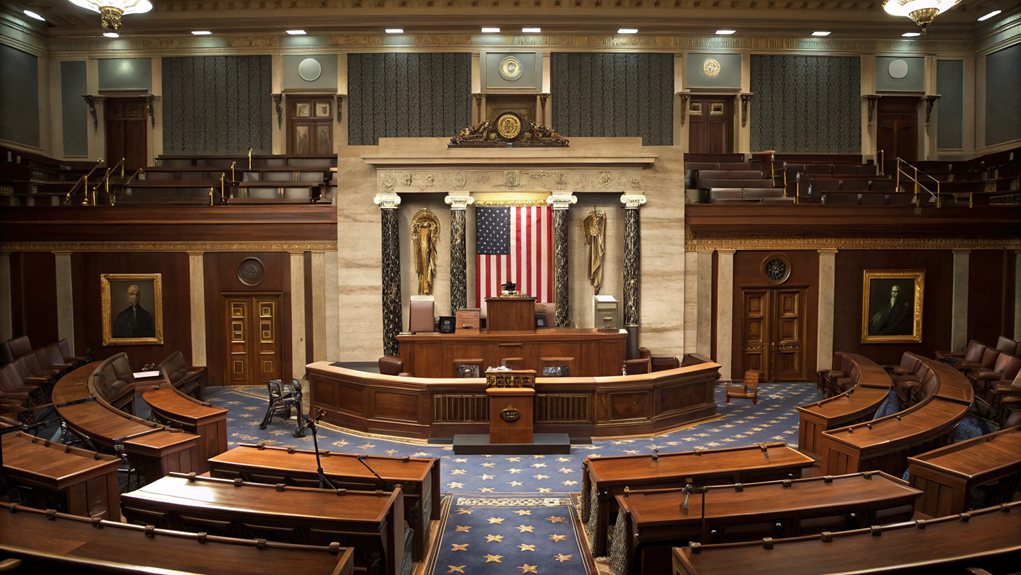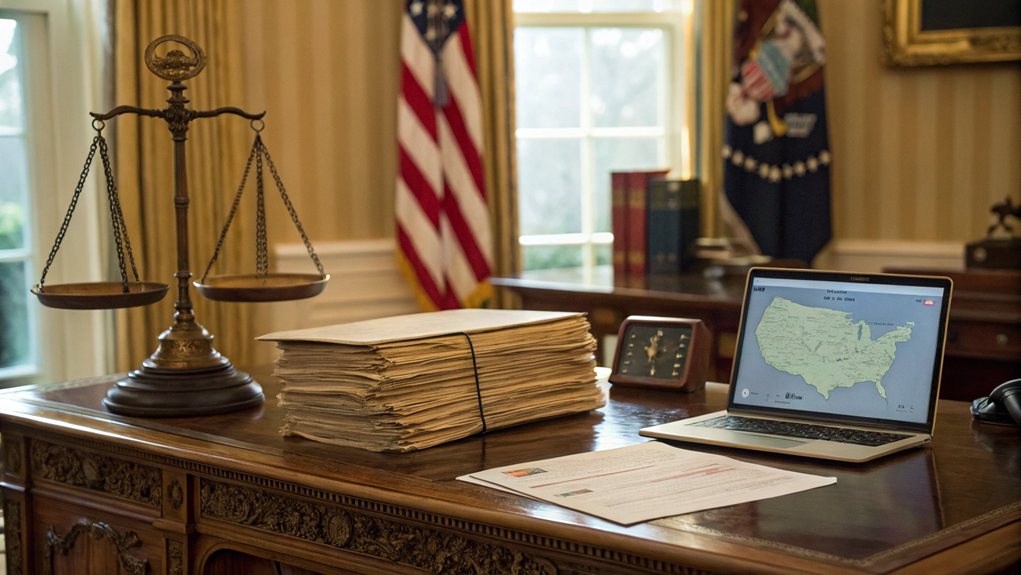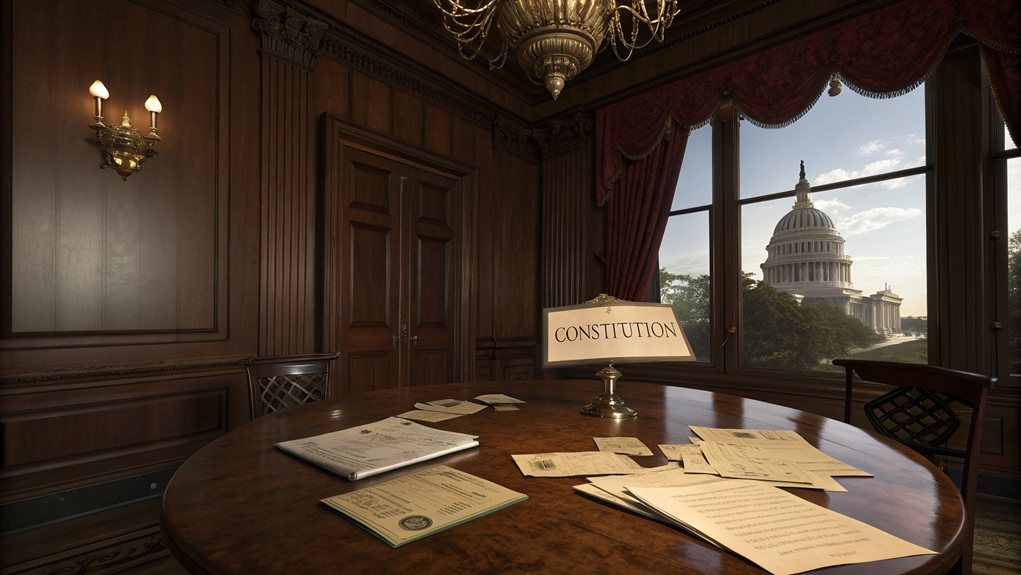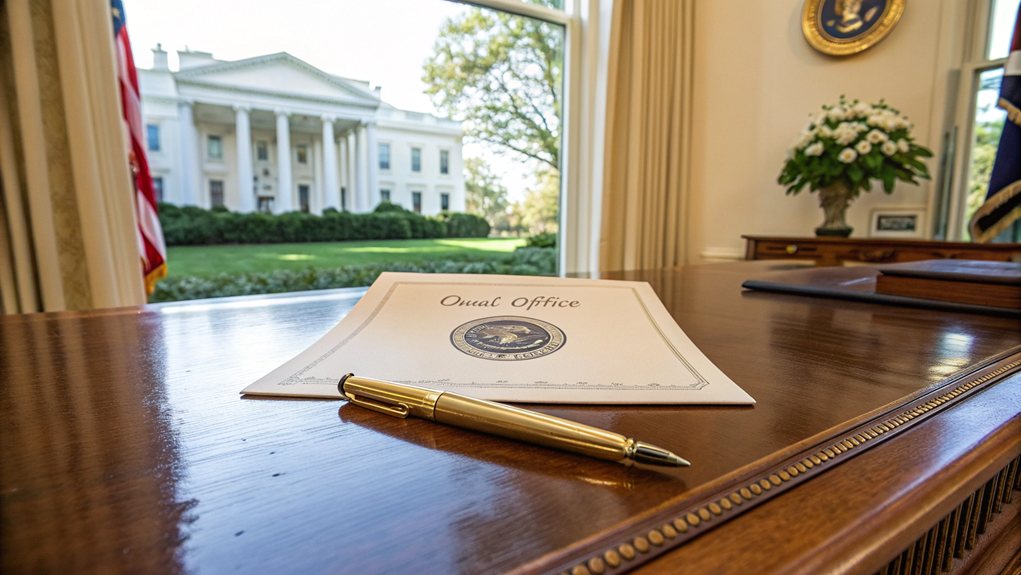The Secretary of State is the big cheese for U.S. foreign policy. They're the President's go-to when it comes to international affairs, like negotiating treaties and handling diplomatic relations. Talk about pressure! This role is not just about talking. It involves juggling trade, security, and those pesky international human rights issues too. Plus, they're a key player at major global conferences. Think you know the full story? There's more to this role than meets the eye.
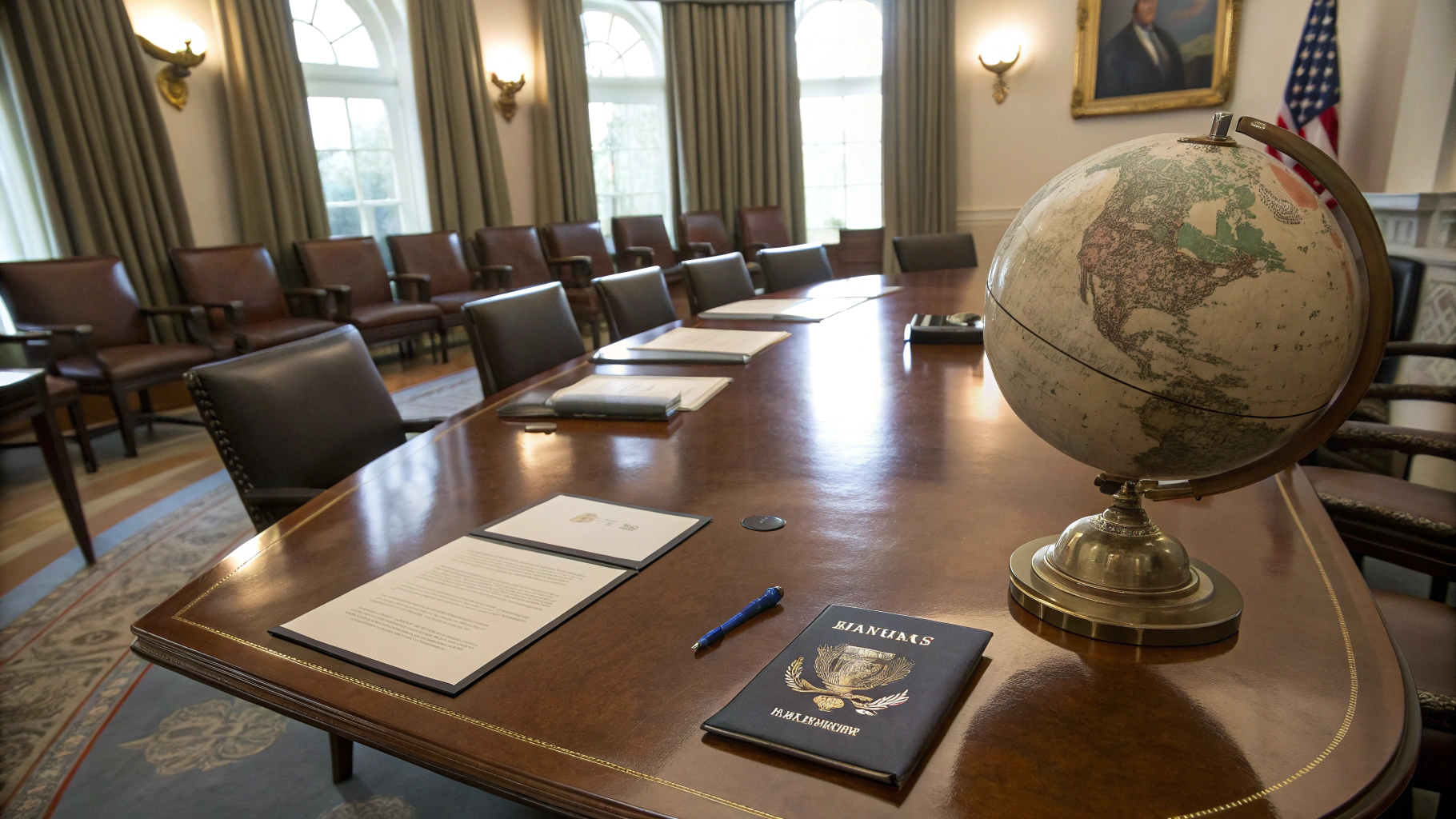
The Secretary of State—sounds important, right? This position is a big deal in the U.S. government. They lead the Department of State, which is all about managing foreign relations. Basically, they're the President's go-to person for anything related to international affairs. Think of them as the ultimate diplomat, but with a fancier title.
The Secretary of State is the key diplomat in U.S. government, managing foreign relations and advising the President on international affairs.
Nominated by the President and confirmed by the Senate, the Secretary of State is the second-highest-ranking member of the cabinet, right after the Vice President. That's some serious clout. They advise the President on foreign policy and oversee the U.S. foreign service. Treaties? Negotiated by them. But hold on, they need Senate approval to make it official. It's like a high-stakes game of diplomatic chess. They also coordinate international efforts on issues like trade, security, and human rights, ensuring the U.S. takes a leading role on the global stage.
Traveling the world, the Secretary represents the U.S. at international conferences, trying to make friends with foreign leaders. They manage diplomatic relations, which often involves shaking hands and smiling for the cameras. But it's not all about the glamour. They also have to deal with serious stuff like international security and arms control. No pressure, right? The Secretary of State also conducts negotiations and interprets treaties, ensuring they align with U.S. interests.
On top of all that, they have domestic responsibilities. They handle the Great Seal of the United States—fancy! They engage with government levels, draft proclamations, and even deal with presidential resignations. Talk about multitasking. Most presidential administrations have had a secretary of state, which reflects the role's significance in shaping U.S. foreign policy.
Historically, this role has been a launching pad for future presidents. Remember Thomas Jefferson? Yep, he was the first. Since then, though, it's been a mixed bag. Colin Powell, Hillary Clinton—you've heard of them. They've all held the position, proving it's influential.
In short, the Secretary of State is a key player in U.S. foreign policy. It's a tough gig, a blend of diplomacy, administration, and a touch of political theater. With a salary of $250,600, they better have a knack for juggling.
Frequently Asked Questions
What Qualifications Are Needed to Become Secretary of State?
To snag the Secretary of State gig, one doesn't need a magic wand—just a solid grasp of foreign policy and international relations.
Experience? Absolutely essential. Think government roles, diplomacy, and a knack for dealing with global politics.
No constitutional checklist exists, but previous high-profile positions are a must. It's like a résumé contest for the world stage.
Basically, if you can talk to other countries without starting a war, you're in the running.
How Does the Secretary of State Influence Foreign Policy?
The Secretary of State wields significant power in shaping foreign policy. They're the President's go-to person on global issues, making decisions that can change the world—no pressure, right?
They negotiate treaties, draft agreements, and represent the U.S. in international talks. It's like being a diplomat on steroids.
They tackle crises, manage ambassadors, and even promote human rights. In short, they're a big deal, influencing how the U.S. plays nice—or not—on the global stage.
Who Appoints the Secretary of State?
The Secretary of State? Yeah, that gig starts with a presidential nod.
The President picks someone, sends their name to the Senate, and then it's time for a confirmation showdown.
The Senate Committee grills the nominee, making sure they're not a total disaster.
If they pass that test, the full Senate votes. A simple majority seals the deal, and just like that, a new Secretary of State steps into the spotlight.
Can the Secretary of State Be Removed From Office?
Oh, the Secretary of State? Sure, they can be kicked out. Impeachment is one way, but good luck with that—Congress has to agree, and that's a circus in itself.
The President can also just say, "You're out!" No need for a fancy trial there. It's all laid out in the Constitution.
What Are the Historical Milestones of the Secretary of State Position?
The Secretary of State has a colorful history. Established in 1789, it became the first cabinet position. Many early Secretaries, like Jefferson, eventually snagged the presidency.
Diverse leaders have held the role, from Colin Powell to Hillary Clinton. The job evolved, tackling everything from foreign treaties to human rights.
Today, it's about managing global crises and steering through modern challenges. It's a big deal, with serious implications. Who knew diplomacy could be this dramatic?
